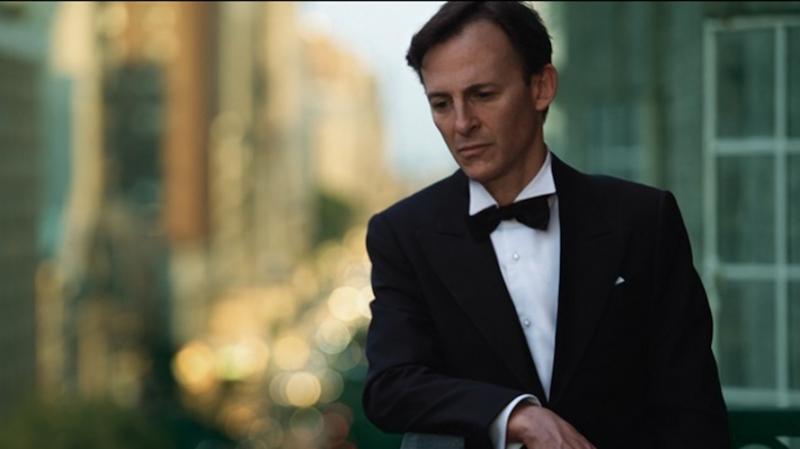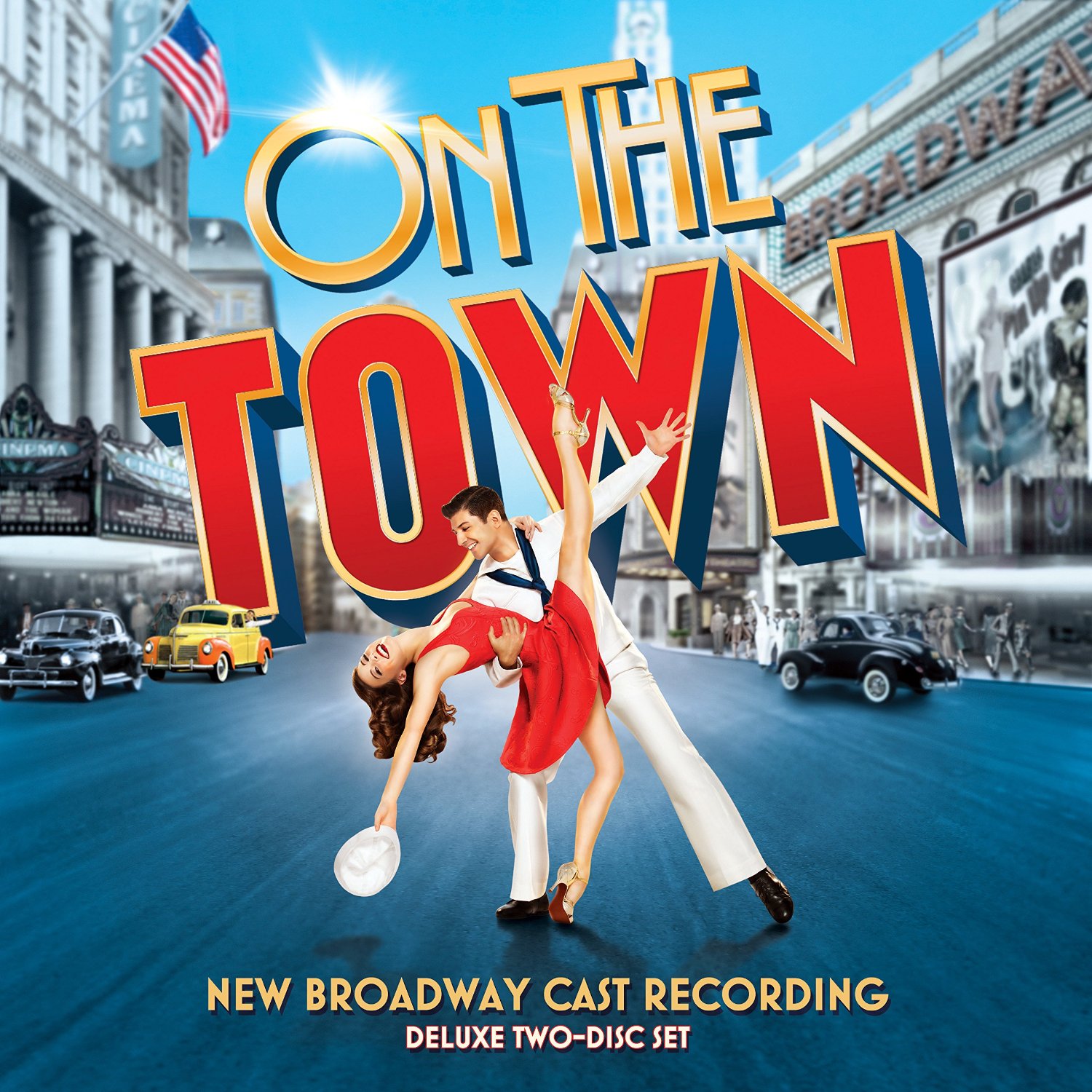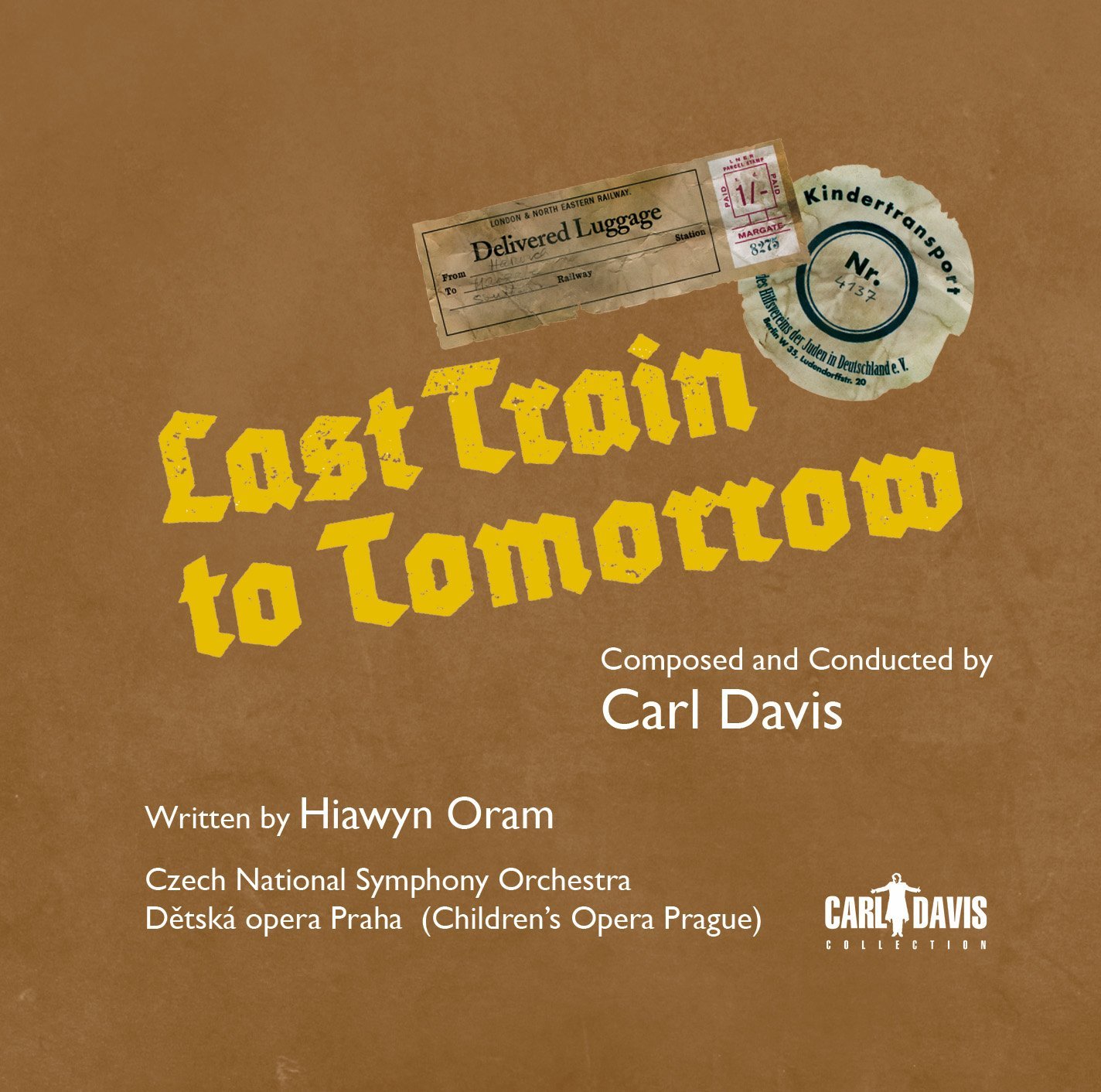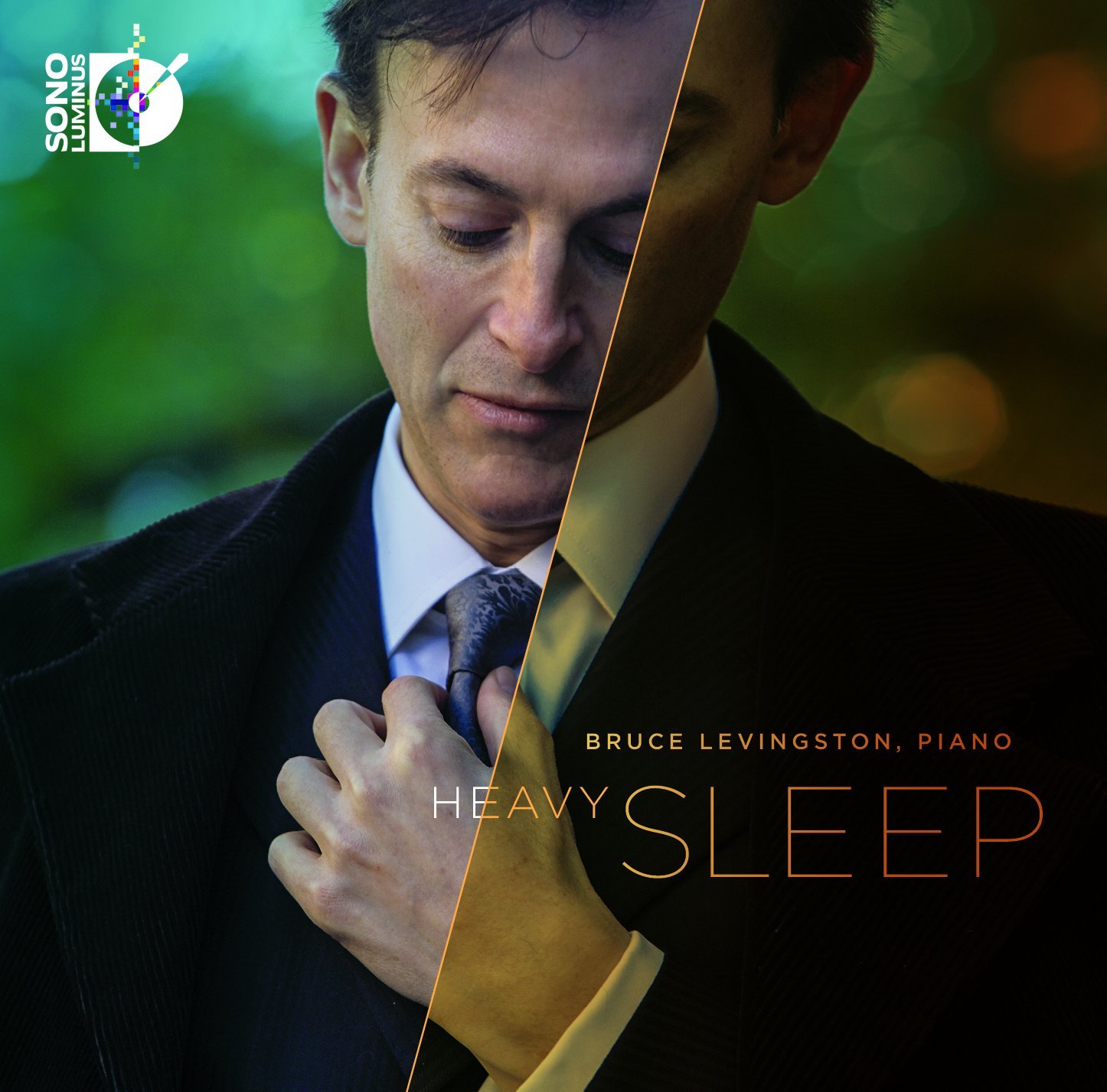Classical CDs Weekly: Bernstein, Carl Davis, Bruce Levingston | reviews, news & interviews
Classical CDs Weekly: Bernstein, Carl Davis, Bruce Levingston
Classical CDs Weekly: Bernstein, Carl Davis, Bruce Levingston
A life-enhancing Broadway musical, a moving work for children's voices and a striking piano recital

 Bernstein: On The Town (2014 Broadway Production) (PS Classics)
Bernstein: On The Town (2014 Broadway Production) (PS Classics)
West Side Story is a masterpiece, but its earnestness can become a little overbearing, so I retain a sneaky preference for Leonard Bernstein's 1944 musical On The Town. You may think you know it from the 1949 film starring Gene Kelly and Frank Sinatra. But, crazily, the film's producers objected to Bernstein's music and ditched most of his songs, replacing them with bland substitutes. The stage show grew from Bernstein and Jerome Robbins's similarly-plotted short ballet Fancy Free. Robbins devised the show's choreography, and Bernstein asked Adolph Green and Betty Comden to provide book and lyrics – a wise decision, as they're On The Town's greatest assets. Not that it's a disappointment musically. The ballet numbers have long enjoyed a concert hall existence, and they're phenomenally played here by James Moore's well-equipped pit band. Bernstein's ideas come thick and fast, and even the throwaway numbers sparkle. But this show works because of its songs. I still giggle at taxi-driving Hildy's reference to “a pot of joy for a hungry boy” in “I can cook too”, and at the prosaic Chip describing himself to Gabey as “a guy who always functions systematic'ly” in “Ya Got Me”.
The greatest moment (and one of the best things that Bernstein ever wrote) was a last minute addition to the show: the song “Some Other Time”, a heartbreaking hymn to life's transience. Lines such as “Just when the fun is starting./Comes the time for parting” pack a real punch, as there's every possibility that Chip, Ozzie and Gabey might lose their lives when they rejoin their ship. Reintroducing “New York, New York” at the close is a brilliant stroke, as three more sailors disembark and the story starts all over again.
This comprehensive, beautifully recorded set was made by the cast of the 2014 Broadway revival. I've heard mixed reports about the staging, but vocally it doesn't disappoint. Michael Tilson Thomas's handsome DG recording suffers from using operatic voices, but here we've got actors who can sing. Clyde Alves, Jay Armstrong Johnson and Tony Yasbeck shine as the three sailors, well matched by Alysha Umpress and Elizabeth Stanley as Hildy and Claire. The one niggle is the occasional overacting in the dialogue snippets; Comden and Green's witty words don't need this much overemphasis. But this is still a self-recommending, well-annotated release, opening with a historically accurate rendition of The Star-Spangled Banner and closing, appropriately, with the show's exit music.
 Carl Davis: Last Train to Tomorrow Children's Opera Prague, Czech National Symphony Orchestra/Carl Davis (Threefold Records)
Carl Davis: Last Train to Tomorrow Children's Opera Prague, Czech National Symphony Orchestra/Carl Davis (Threefold Records)
Last Train to Tomorrow tells the story of the Kindertransport, its sequence of songs with words by children's author Hiawyn Oram recalling the experiences of Jewish children from Berlin, Vienna and Prague travelling across Europe to Liverpool Street Station in the late 1930s. It's not an easy subject, but Davis, better known for orchestrated pop songs and soundtracks, deserves huge credit for tackling it in such a thoughtful, sober way. The unfussy scoring for strings, piano and percussion reflects the sound of mid-20th century music by the likes of Bartók and Martinů, with salient nods to Mozart, Johann Strauss and Jewish folk music. The disparate elements mesh together beautifully. Oram's libretto is poetic and lucid. The stretches of narration tell us just enough, the story mostly told through sung melody. The equivocal, cautiously optimistic closing pages aren't overblown. This is a powerful, effective and moving work, and one suspects that it would be much better known had it been composed by a trendier, less self-effacing composer.
It was commissioned by the Hallé Orchestra for its Children's Choir, and the premiere was given in Manchester in 2012. This recording doesn't use the same forces; the cantata's second performance was given in Prague, translated into Czech – which led its composer Carl Davis to ask if the Czech singers could perform it in English, which, being good Europeans, they were happy to do. Pronunciation and diction here are flawless, the accents lending the work extra authenticity. Davis also conducts the Czech National Symphony in a suite of film music composed for Arnold Schwartzman's 1994 documentary Liberation, and arrangements of La Marseillaise, Rule Brittania and Hatikva. The visually arresting CD booklet is a miniature work of art, containing Oram's full texts in a readable font.
 Heavy Sleep Bruce Levingston (piano) (Sono Luminus)
Heavy Sleep Bruce Levingston (piano) (Sono Luminus)
Timo Andres wrote Heavy Sleep for pianist Bruce Levingston, telling him that he'd aimed to give it a “Debussy + Bach vibe, if such a thing is possible”. Opening with resonant pedal notes and squelchy chords, it feels as if Debussy has the upper hand. Andres was inspired by Swedish poet Tomas Tranströmer's Nocturne, and it's tempting to think that the music's shifts between woozy uncertainty and stark clarity mirror Tranströmer's images of buildings springing into life when suddenly illuminated by car headlights. Heavy Sleep makes an ideal curtain-raiser for a sublime disc, containing works which Levingston believes “relate directly or spiritually to the theme of death, rebirth, or both.” He follows the Andres with a sequence of Bach keyboard pieces, both originals and in transcription. The Bach-Siloti Prelude in B Minor is gorgeously played, Silotti giving the pianist's right hand what was previously heard in the bass. It's followed by a hushed, intense reading of the final prelude and fugue from Book 1 of Bach's Well-Tempered Clavier, so good that you wish that Levingston would record the lot.
György Kurtág's touching transcription of Gottes Zeit ist die allerbest Zeit is heart-rending, and it's fascinating to read Kurtág's thoughts on Bach in the notes: “I am certainly an atheist... if I look at Bach, I cannot be an atheist.” Mohammed Fairuz's El Male Rachamim, subtitled 'A prayer in memory of György Ligeti', is a tougher nut to crack. Fairouz was one of Ligeti's last composition pupils, and he pays his respects here over five unsettling short movements. The final one is the most appealing, the quietly ecstatic close a smart way to end a rewarding recital. Levingston's flawless technique always serves the music. He writes good sleeve notes. Sono Luminus's production values are up to scratch. Why hesitate?
Explore topics
Share this article
The future of Arts Journalism
You can stop theartsdesk.com closing!
We urgently need financing to survive. Our fundraising drive has thus far raised £49,000 but we need to reach £100,000 or we will be forced to close. Please contribute here: https://gofund.me/c3f6033d
And if you can forward this information to anyone who might assist, we’d be grateful.

Subscribe to theartsdesk.com
Thank you for continuing to read our work on theartsdesk.com. For unlimited access to every article in its entirety, including our archive of more than 15,000 pieces, we're asking for £5 per month or £40 per year. We feel it's a very good deal, and hope you do too.
To take a subscription now simply click here.
And if you're looking for that extra gift for a friend or family member, why not treat them to a theartsdesk.com gift subscription?
more Classical music
 Bizet in 150th anniversary year: rich and rare French offerings from Palazzetto Bru Zane
Specialists in French romantic music unveil a treasure trove both live and on disc
Bizet in 150th anniversary year: rich and rare French offerings from Palazzetto Bru Zane
Specialists in French romantic music unveil a treasure trove both live and on disc
 Scottish Chamber Orchestra, Ibragimova, Queen’s Hall, Edinburgh review - rarities, novelties and drumrolls
A pity the SCO didn't pick a better showcase for a shining guest artist
Scottish Chamber Orchestra, Ibragimova, Queen’s Hall, Edinburgh review - rarities, novelties and drumrolls
A pity the SCO didn't pick a better showcase for a shining guest artist
 Kilsby, Parkes, Sinfonia of London, Wilson, Barbican review - string things zing and sing in expert hands
British masterpieces for strings plus other-worldly tenor and horn - and a muscular rarity
Kilsby, Parkes, Sinfonia of London, Wilson, Barbican review - string things zing and sing in expert hands
British masterpieces for strings plus other-worldly tenor and horn - and a muscular rarity
 From Historical to Hip-Hop, Classically Black Music Festival, Kings Place review - a cluster of impressive stars for the future
From quasi-Mozartian elegance to the gritty humour of a kitchen inspection
From Historical to Hip-Hop, Classically Black Music Festival, Kings Place review - a cluster of impressive stars for the future
From quasi-Mozartian elegance to the gritty humour of a kitchen inspection
 Shibe, LSO, Adès, Barbican review - gaudy and glorious new music alongside serene Sibelius
Adès’s passion makes persuasive case for the music he loves, both new and old
Shibe, LSO, Adès, Barbican review - gaudy and glorious new music alongside serene Sibelius
Adès’s passion makes persuasive case for the music he loves, both new and old
 Anja Mittermüller, Richard Fu, Wigmore Hall review - a glorious hall debut
The Austrian mezzo shines - at the age of 22
Anja Mittermüller, Richard Fu, Wigmore Hall review - a glorious hall debut
The Austrian mezzo shines - at the age of 22
 First Person: clarinettist Oliver Pashley on the new horizons of The Hermes Experiment's latest album
Compositions by members of this unusual quartet feature for the first time
First Person: clarinettist Oliver Pashley on the new horizons of The Hermes Experiment's latest album
Compositions by members of this unusual quartet feature for the first time
 Gesualdo Passione, Les Arts Florissants, Amala Dior Company, Barbican review - inspired collaboration excavates the music's humanity
At times it was like watching an anarchic religious procession
Gesualdo Passione, Les Arts Florissants, Amala Dior Company, Barbican review - inspired collaboration excavates the music's humanity
At times it was like watching an anarchic religious procession
 Classical CDs: Camels, concrete and cabaret
An influential American composer's 90th birthday box, plus British piano concertos and a father-and-son duo
Classical CDs: Camels, concrete and cabaret
An influential American composer's 90th birthday box, plus British piano concertos and a father-and-son duo
 Cockerham, Manchester Camerata, Sheen, Martin Harris Centre, Manchester review - re-enacting the dawn of modernism
Two UK premieres added to three miniatures from a seminal event of January 1914
Cockerham, Manchester Camerata, Sheen, Martin Harris Centre, Manchester review - re-enacting the dawn of modernism
Two UK premieres added to three miniatures from a seminal event of January 1914
 Kempf, Brno Philharmonic, Davies, Bridgewater Hall, Manchester review - European tradition meets American jazz
Bouncing Czechs enjoy their Gershwin and Brubeck alongside Janáček and Dvořák
Kempf, Brno Philharmonic, Davies, Bridgewater Hall, Manchester review - European tradition meets American jazz
Bouncing Czechs enjoy their Gershwin and Brubeck alongside Janáček and Dvořák
 Solomon, OAE, Butt, QEH review - daft Biblical whitewashing with great choruses
Even a top soprano and mezzo can’t make this Handel paean wholly convincing
Solomon, OAE, Butt, QEH review - daft Biblical whitewashing with great choruses
Even a top soprano and mezzo can’t make this Handel paean wholly convincing

Add comment